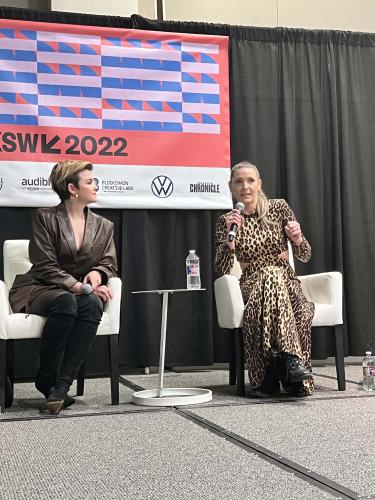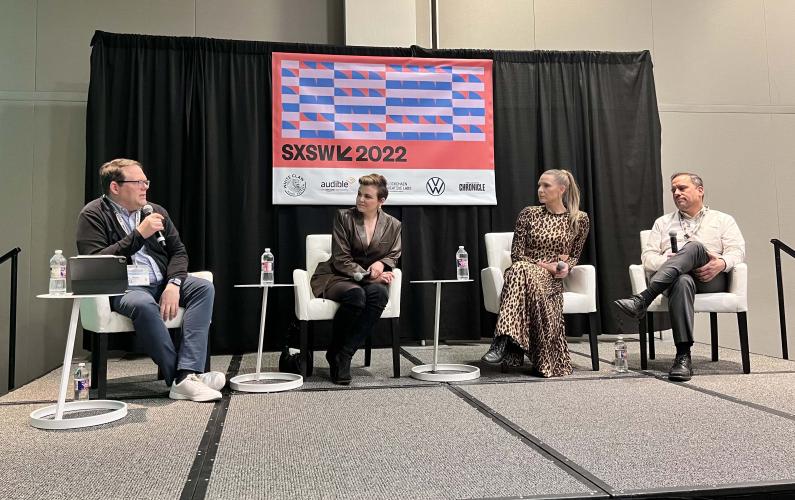
At the 2022 SXSW Conference and Festival, panelists reflect on how streaming is changing the entertainment industry’s landscape.
As the audience continues to fragment and that carries through to streaming services, it does call into question the quality of content and the societal impact, [and] I do have a level of concern about if we’re going to continue to see content play a role in societal change.
Ray Rodriguez
SAG-AFTRA Chief Contracts Officer
As part of the 2022 SXSW Conference and Festival, which took place from March 11–20, SAG-AFTRA hosted the Streaming and the Changing Business Model panel on March 12. Joining SAG-AFTRA National Executive Director Duncan Crabtree-Ireland, who served as moderator, were SAG-AFTRA Chief Contracts Officer Ray Rodriguez, actor Ginnifer Goodwin (Pivoting, Once Upon a Time) and producer Michelle Lang (Everybody Is Doing Great).
The panel reflected on the ways the industry continues to change in light of the proliferation of streaming sites in recent years. The conversation opened with panelists Rodriguez and Goodwin talking about the increase in productions and the availability of gigs for working actors. Although streaming has seemingly led to more work opportunities for performers, Goodwin noted that they are starting to face new challenges, including a worry of their work not being seen by wider audiences.
“What I find is that it’s a lot harder to wade through projects to determine what is going to be worth doing,” said Goodwin. “There is so much content … and everything feels a bit riskier in terms of, ‘Is this something that will even ever be seen?’”
The conversation then expanded into discussing how same-day film releases on streaming services are shifting away from the more familiar theatrical-release model. Using actor Scarlett Johansson’s legal action against Disney as a real-life example of those types of disruptions, Rodriguez pointed out that the trend and its ramifications will play a considerable role in the way industry experts define the fiscal success of a project and ways unions will negotiate with studios in the future.
“The streaming distribution model is clearly pointing to different ways deals are going to be bargained. It’s basically a vertically integrated monopoly from productions to exhibition, and there’s no transparency into how much [studios] are benefitting from this content,” said Rodriguez.
The conversation between the panelists brought attention to new habits audiences and streaming subscribers’ are exhibiting when consuming content. Goodwin and Lang noted how, as consumers, algorithms are playing a role in what shows are available for them and the difficulties in exploring and discovering new and more independently produced programming.
“The idea that [an algorithm thinks it knows] what you like and therefore wouldn’t open you up to something it thinks you wouldn’t like is a conflict between different ideas in culture as a whole,” said Lang. “I think it’s a slippery slope … and I wish it could be turned on its head. Like, ‘You like this content; let’s show you something that’s the opposite of that.’”
The panel concluded with a Q&A.
News
- Tags:
- News Updates



